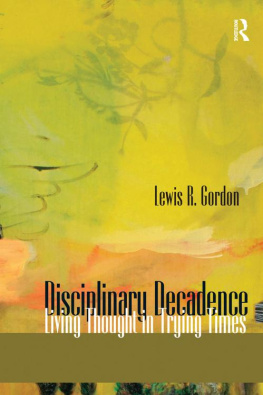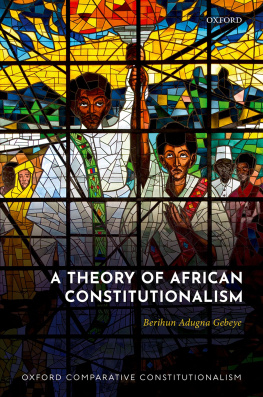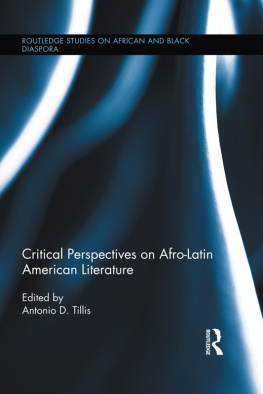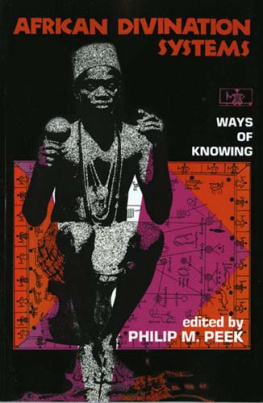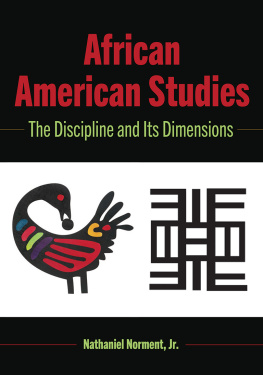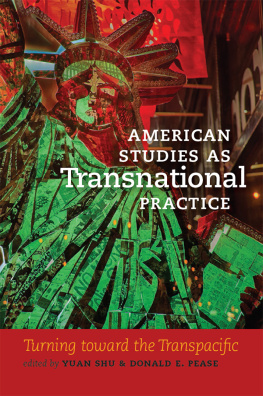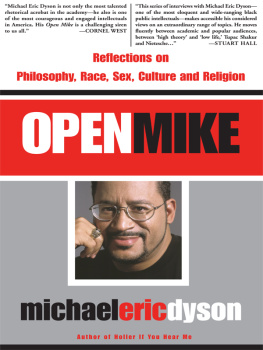NOT ONLY THE MASTERS TOOLS
Cultural Politics & the Promise of Democracy
A Series from Paradigm Publishers
Edited by Henry A. Giroux
Empire and Inequality: America and the World Since 9/11
by Paul Street
The Terror of Neoliberalism
by Henry A. Giroux
Caught in the Crossfi re: Kids, Politics,
and Americas Future
by Lawrence Grossberg
Reading and Writing for Civic Literacy: The Critical
Citizens Guide to Argumentative Rhetoric
by Donald Lazere
Schooling and the Struggle for Public Life,
Updated Edition
by Henry A. Giroux
Not Only the Masters Tools: African-American Studies in
Theory and Practice
edited by Lewis R. Gordon and Jane Anna Gordon
Michel Foucault: Materialism and Education, Updated
Edition
by Mark Olssen
Forthcoming
Listening Beyond the Echoes: Media, Agency and Ethics in
a Mediated World
by Nick Couldry
Reading French Feminism
by Michael Payne
NOT ONLY THE
MASTERS TOOLS
African-American Studies
in Theory and Practice
EDITED WITH AN INTRODUCTION BY
LEWIS R. GORDON AND
JANE ANNA GORDON
First published 2006 by Paradigm Publishers
Published 2016 by Routledge
2 Park Square, Milton Park, Abingdon, Oxon OX14 4RN
711 Third Avenue, New York, NY 10017, USA
Routledge is an imprint of the Taylor & Francis Group, an informa business
Copyright 2006 by Lewis R. Gordon and Jane Anna Gordon
All rights reserved. No part of this book may be reprinted or reproduced or utilised in any form or by any electronic, mechanical, or other means, now known or hereafter invented, including photocopying and recording, or in any information storage or retrieval system, without permission in writing from the publishers.
Notice:
Product or corporate names may be trademarks or registered trademarks, and are used only for identification and explanation without intent to infringe.
Library of Congress Cataloging-in-Publication Data
Not only the masters tools : African-American studies in theory and practice /
edited with an introduction by Lewis R. Gordon and Jane Anna Gordon.
p. cm.
Includes bibliographical references and index.
ISBN 1-59451-146-2 (hc)ISBN 1-59451-147-0 (pbk)
1. African AmericansStudy and teaching. 2. African Americans
Intellectual life. 3. African American philosophy. I. Gordon, Lewis R. (Lewis
Ricardo), 1962 II. Gordon, Jane Anna, 1976
E184.7.N68 2006
973.04960730071dc22
2005030856
Designed and Typeset by Straight Creek Bookmakers.
ISBN 13: 978-1-59451-146-2 (hbk)
ISBN 13: 978-1-59451-147-9 (pbk)
To Uncle Paget,
a tireless warrior in the struggle for ideas
Contents
Introduction:
Not Only the Masters Tools
Lewis R. Gordon and Jane Anna Gordon
The masters tools will never dismantle the masters house. So went Audre Lordes credo in Sister Outsider, which has stood as a guiding principle of subaltern studies. It has meant avoiding the trappings of Eurocentric scholarship and the disciplinary edicts encompassed by it.
The guiding principle of this collection of essays, with no disrespect to Lordes important contributions intended, is that dismantling the masters house is a misguided project. Even if it were true that his house cannot be dismantled by his tools, slaves have historically done something more provocative with such tools than attempt to dismantle the Big House. There are those who used those tools, developed additional ones, and built houses of their own on more or less generous soil. It is our view that the proper response is to follow their lead, transcending rather than dismantling Western ideas through building our own houses of thought. When enough houses are built, the hegemony of the masters housein fact, mastery itselfwill cease to maintain its imperial status. Shelter neednt be the rooms offered by such domination.
The area of research that became known as Black Studies, then African-American Studies and then Africana Studies, has faced questions of how its subject matter should be approached. The dominant approach is to treat Black Studies as an area of research in which training in other disciplines is applied to the study of black people. Whether as Black Studies, African-American Studies, or Africana Studies, a peculiar feature of this area of research is its clear interdisciplinary ethos. To be in Black Studies means, always, to have more than one disciplinary identity and to face the accompanying concern of which disciplines are best suited for engagement with the African diaspora. In some programs and departments, for instance, the view was that the purpose of this area of research was to respond to the lacuna of historical and social scientifi c research on black folk. The result was a preference for social scientifi cally oriented disciplines and research studies such as those found in history, anthropology, economics, sociology, and political science departments. Moreover, the founding of Black Studies programs in the late 1960soften through mechanisms of student protest, most of which was linked to the Black Power movementcame with the prevalent demand for knowledge that would affect national policy. Such demand was ironic since the fi rst Black Studies program, at San Francisco State University, was founded by a group of artists, including Leroi Jones/ Amiri Barka and Sonia Sanchez, from the Black Arts Movement. A moments look into the tenets of that movement clarifi es why they decided to found programs for the academic study of black folk: Indeed, the basic argument of the Black Arts Movement was that art affects the symbols by which people appear in the worldand how people appear has great political consequence. Black Power demanded that control of the means of image production be seized, and the artist intellectuals of the Black Arts Movement attempted to do just that.
Black Studies/African-American Studies/Africana Studies was born with the express purpose of decolonizing the minds of people, especially black people. Although much knowledge can be produced by writing histories and social scientifi c studies, no amount of information could get very far in the absence of minds unable to see or understand it. Important as empirical work has been and continues to be, without interpretation, even at the level of the methods used for organizing the research and gathering data, such work would be meaningless. The power of interpretation is such, however, that it, too, is embedded in a special type of interpretation or hermeneutic without which it, as well, would be meaningless. And that interpretation we call theory.
Without a theoretical framework, the kind of hermeneutic that brings meaning to interpretations, most interpretations would function no better than simple hypotheses in long strings of ideas with the lukewarm designation of maybe. Theoretical frameworks, however, also tend to be embedded in experiences germane to societies and their theorists whose creative work stimulated their birth. What this means is that the theories on which interpretations depend become that on which even our empirical work relies, and such dependency has political consequences. Should Black Studies abrogate responsibility for the theoretical frameworks that inform its production of knowledge, then the very decolonization project sought would be undermined. We call this consequence


